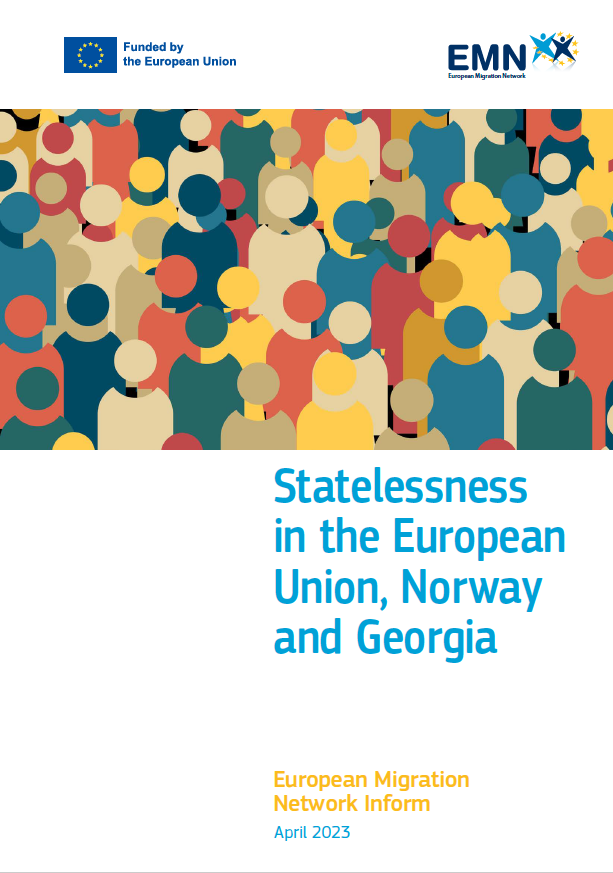This 2023 EMN inform published under the responsibility of EMN Luxembourg is the latest in the series of EMN Platform on Statelessness informs, with two others previously published in 2016 and 2020. It is updated with contributions from the participating EMN Member Countries and EMN Observer Countries. Information related to the United Kingdom (UK) has been removed, as the UK is no longer an EMN Member Country, but UK information remains in the earlier informs.
This EMN inform updates the 2020 Inform Statelessness in the EU, which itself updated the 2016 version via an EMN ad hoc query jointly launched by EMN Ireland and EMN Luxembourg in March 2019 in preparation for their jointly organised technical conference in Dublin in May 2019. The ad hoc query and conference focused on the nexus between the granting of stateless status and residence permits.
Statelessness is a legal anomaly that can prevent those concerned from accessing fundamental human, civil, political, economic, social and cultural rights. As a result, such people often live in conditions of protracted marginalisation and discrimination, facing numerous difficulties, such as the inability to receive medical assistance, access education, acquire property, obtain legal employment, marry, or open a bank account. While statelessness can occur in various contexts, its most common causes include state succession, ill-defined or discriminatory nationality laws, and arbitrary deprivation of nationality. Statelessness can also be a consequence of forced displacement and forced migration and can be the result of people’s difficulties in accessing the civil registration documents (e.g. birth certificates) necessary to acquire or confirm nationality.


